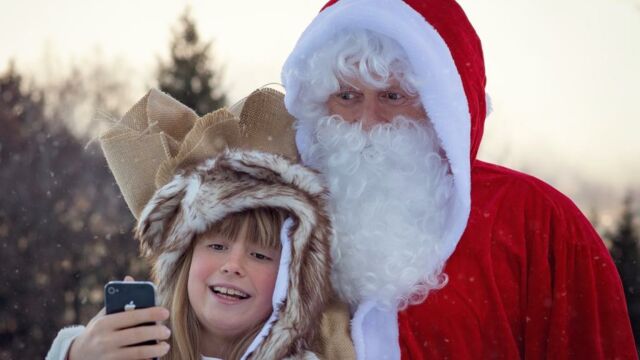Many parents wonder whether they should promote the myth of the jolly old man in the red suit. Is it really good for children’s life skills to believe in Santa Claus?
Discover our latest podcast
Research in developmental psychology suggests it is, and here is why.
Believing in Santa is more important than you think
Going with an innocent lie about Little St Nick has benefits for children’s cognitive and emotional development and may exercise their counterfactual reasoning skills.
The kind of thinking involved in imagining how nine reindeer could fly through the sky carrying a heavy sleigh may well be the same one required for imagining a solution to global warming or a way to cure a disease.
Believing in the impossible is at the root of scientific discoveries

Imagine if all people were ‘realists’ and never believed in 'miracles'? We’d probably still live in caves.
The ability to engage in the border between what is possible and what is impossible is at the root of all scientific discoveries and inventions.
Who knows, maybe believing in Santa could help your little one find a cancer cure one day?
Going with the North Pole inhabitant's story also helps children’s deductive reasoning abilities and their use of evidence.
Allow your child a gift of finding it out by themselves
The greatest benefit to children’s cognitive and emotional development comes from gradually discovering that Santa Claus is not, in fact, a real physical being.
There is often a protracted period during which children become increasingly less sure about Santa’s existence. Toward the end of this period, children may start looking for evidence to confirm their suspicions.

This is where parents can help. Parents who had disguised their handwriting on the presents from Santa can begin to use their own handwriting. Or they can put a few ‘from Santa’ presents under the tree early for children to discover the night before. Once children begin to doubt, they become very scientific about the whole thing, and in some cases even set up their own experiments.
In the end, children are empowered by the feeling that they have figured it out by themselves. Upon making the discovery, they become part of the adult world; they are ‘in on the secret’ and can derive even more emotional benefit by being given a role in keeping the myth alive for their younger siblings.
Sources used:
- The Washington Post: 'Believing in Santa Claus could help your kids develop a cure for cancer'















